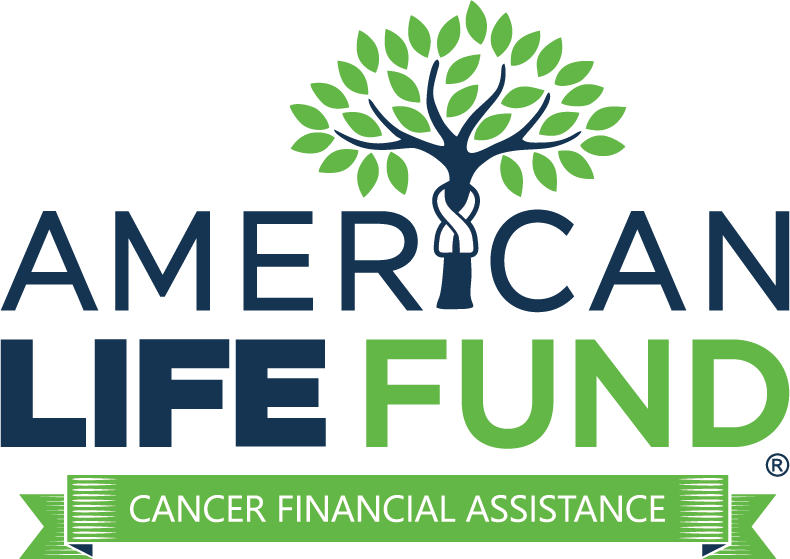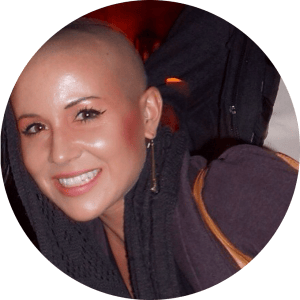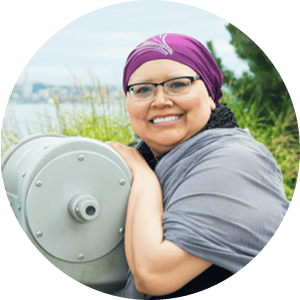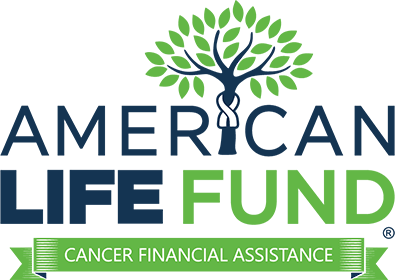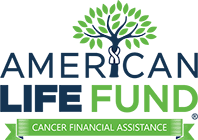Approximately 1 in every 8 women will be diagnosed with breast cancer in the United States alone. As a result, there is a significant need for financial assistance and support for those affected. With breast cancer care costs regularly rising, it is no surprise that those facing treatment are over 2.5 times more likely to file for bankruptcy than their counterparts. A diagnosis can be stressful enough by itself without considering the financial burden it can pose to the patient and their family. At American Life Fund we work regularly with breast cancer patients to help them financially. Below we have compiled this comprehensive list of financial assistance and support for breast cancer patients.
How To Find Financial Assistance For Breast Cancer Patients
Navigating the complexities of financial assistance for breast cancer patients can be daunting. However, you can identify the help you need with the right approach and resources. Here are some steps to guide you in your search:
- Connect with a Healthcare professional
By discussing your financial concerns with your healthcare team. They often have insights into available resources and can direct you to the appropriate channels for assistance. In a survey of breast cancer patients, over 70% reported receiving valuable financial guidance from their healthcare providers. - Contact Local Support Organizations
Reach out to local cancer support organizations, community centers, and hospitals. These organizations are often well-connected and can provide information about local financial assistance programs and support groups tailored to breast cancer patients. - Research Online Resources
The Internet can be a valuable tool for finding financial assistance. Look for reputable websites and forums dedicated to cancer support. In 2021, over 60% of breast cancer patients used online resources to gather information about financial assistance options. - Consult Social Workers
Many healthcare facilities have dedicated social workers who specialize in helping patients navigate the financial aspects of their treatment. They can assist in identifying potential sources of aid and guide you through the application process. - Check with Supportive Organizations
Reach out to national and international cancer support organizations. While we won’t list them here, these organizations often have comprehensive lists of financial assistance programs available for breast cancer patients. They can offer guidance on where to look for help. - Attend Support Groups
Joining a support group for breast cancer patients can provide emotional support and valuable insights into available financial assistance programs. Many group members have personal experiences and can share information about resources they’ve accessed. - Review Medical Bills and Insurance
Carefully review your medical bills and insurance policies. It’s essential to understand your coverage and ensure that you are not being billed for services or treatments that should be covered by insurance. Billing errors can add unnecessary financial strain.
These steps will guide you in seeking financial assistance for breast cancer patients. In the next sections, we will discuss specific financial assistance programs and resources in more detail. Exploring multiple avenues and consulting with professionals who can help tailor your approach to your unique circumstances is important.
Breast Cancer-Specific Financial Grants From Organizations
There are a multitude of organizations that help cancer patients financially. This type of financial aid for breast cancer patients is also known as a breast cancer-specific financial grant.
While some grants are generalized and open to applicants with all cancer types, others are specific to breast cancer. The best place to search for breast cancer grants for patients is online and through local nonprofit organizations.
When looking online, try searching for “breast cancer grants” or “breast cancer financial grants,” as well as the more general but still applicable “cancer financial grants.” The best part about cancer financial grants is that they are free money, and don’t come with strings attached.
Although locating grants for breast cancer patients can be time-consuming, the time invested can pay for itself. The most challenging part regarding financial grants is locating breast cancer financial assistance grants that still have funding available. Don’t be discouraged–persistence is key, and resources are out there.
- Breast Cancer Assistance Fund
- The Pink Fund
- Komen Treatment Assistance Program
- Jill’s Wish Foundation Fund (to be eligible, you must reside in one of the following areas: Louisville, KY; Southern, IN; Central Kentucky; Cincinnati, OH, or Michigan)
- Alliance in Reconstructive Surgery Fund (to be eligible, you must be a patient seeking financial help for cancer patients, including breast reconstruction after mastectomy)
- American Cancer Society Fund
Also, check out these great resources:
- Cancer Financial Assistance Coalition (this is a tool that connects cancer patients with financial assistance resources based on geographic location and diagnosis.)
- Triage Cancer and Needymeds (these organizations maintain a long-running list of financial assistance resources for cancer patients)


Government Financial Assistance Programs
In addition to grants from charitable organizations, government financial assistance programs play a crucial role in supporting breast cancer patients during their journey. These programs are designed to provide financial relief, access to healthcare, and disability benefits to eligible individuals. Here, we’ll explore some of the key government assistance programs available:
- Medicaid
Medicaid is a joint federal and state program that offers healthcare coverage to low-income individuals, including breast cancer patients. Eligibility criteria and coverage vary by state, but generally, Medicaid can help cover medical expenses, including doctor visits, hospital stays, and prescription medications. In 2021, Medicaid provided essential support to approximately 15% of breast cancer patients in the United States. - Social Security Disability Insurance (SSDI)
SSDI is a federal program that provides disability benefits to individuals who cannot work due to a disability, including breast cancer. Eligibility is determined based on work history and the severity of the disability. In 2021, nearly 31% of breast cancer patients relied on SSDI benefits to support themselves during treatment. - Supplemental Security Income (SSI)
SSI is another federal program that provides financial assistance to low-income individuals with disabilities, including those with breast cancer. It offers monthly cash payments to help cover basic needs such as food, shelter, and clothing. - State-Specific Programs
Many states offer additional assistance programs for breast cancer patients, such as state-funded healthcare coverage and temporary disability benefits. These programs’ availability and eligibility criteria vary by state, so you must check with your state’s health department or social services agency for information. - Affordable Care Act (ACA) Marketplace
The ACA established health insurance marketplaces where individuals and families can purchase private health insurance plans. Depending on your income, you may qualify for subsidies that reduce the cost of coverage. Open enrollment periods typically occur yearly, but special enrollment periods may be available for those experiencing life-changing events, such as a breast cancer diagnosis.
Government financial assistance programs provide essential support for breast cancer patients, helping them access the necessary care and resources. Eligibility for these programs can vary, so it’s advisable to consult with a healthcare professional or social worker who can guide you through the application process and ensure you receive the assistance you require.
Housing Financial Assistance
Breast cancer patients often face housing-related financial challenges during their treatment journey. Fortunately, there are various forms of support available. Temporary housing programs, grants, and aid from nonprofit organizations can help cover housing costs. Local housing assistance, home modification programs, and legal aid services address specific needs. Government housing programs and financial counseling services offer vital support. These resources aim to guarantee stable housing, allowing patients to focus on their recovery.
Mortgage Payments
Breast cancer patients may encounter difficulties with mortgage payments while undergoing treatment. Fortunately, there are programs and resources designed to provide relief. Nonprofit organizations offer financial aid or grants to help cover mortgage costs during this challenging time. Exploring these options can help patients maintain their homes and reduce the financial strain associated with cancer treatment.
Rent Payments
Maintaining stable housing is essential for breast cancer patients, and covering rent can be a significant concern during treatment. Several assistance programs offer rent payment assistance to ease this burden. These resources provide financial aid or grants, ensuring patients can focus on their health and well-being without worrying about housing-related expenses.
Accommodation During Breast Cancer Treatment
Breast cancer treatment often requires a series of medical appointments, and, for some patients, traveling to specialized facilities becomes a necessary part of their journey. During this challenging time, securing suitable accommodation is of utmost importance. Fortunately, several organizations and programs are dedicated to providing support through temporary housing.
Two prominent options for temporary housing assistance are:
Ronald McDonald House Charities: This organization offers free or low-cost lodging primarily for pediatric cancer patients and their families. It’s worth noting that select locations may extend their support to adult cancer patients, providing a welcoming environment during their treatment.
American Cancer Society’s Hope Lodge: The Hope Lodge program, provided by the American Cancer Society, offers a home-like environment where cancer patients and their caregivers can stay for free. This generous offering significantly alleviates the challenges of finding affordable lodging during treatment.
These resources, along with others available, aim to ensure that breast cancer patients and their families have access to a supportive and comforting place to stay when their focus should be on healing and recovery.
Utility Assistance
When juggling finances to pay for cancer care, every little bit helps. Breast cancer financial help comes in many forms:
Utility assistance is payment provided to help cover the cost of utilities within a home, including payment for home energy costs, bills, and any necessary energy repairs.
Utility assistance helps breast cancer patients by taking some of the financial burden off their shoulders and allowing them to focus more on investing in their treatment.
The LIHEAP (Low Income Energy Assistance Program) offers utility assistance to low-income households and those experiencing crises. The contact information for this resource differs from state to state, so be sure to check the website.
Cancer Horizons and The Pink Fund are two great resources to consult for financial utility assistance. You can also call “211” to locate additional local utility assistance programs for needy cancer patients.
Triple Step Toward the Cure provides emergency financial assistance for rent, utilities, and housekeeping services. Cleaning for a Reason offers two free home cleanings to breast cancer patients..
Transportation Assistance
Breast cancer treatment often requires regular medical appointments and sometimes distant travel, posing patient challenges. Fortunately, some dedicated programs and organizations provide transportation assistance to make sure patients can access the necessary care.
The American Cancer Society’s “Road To Recovery” program is a valuable resource for breast cancer patients needing transportation to and from their treatment centers. Trained volunteer drivers offer free rides, alleviating the burden of transportation costs and ensuring patients can attend their appointments without worry.
Free Gas Cards
When dealing with breast cancer, the last thing you should worry about is the gas price; however, as trips to alternative cancer treatment centers increase, so does transportation. Gas can be EXPENSIVE – so why pay for it if you don’t have to? Check those organizations providing free cards for cancer patients and government grants for cancer patients.
Breast Cancer Angels (southern CA applicants only) and Tenaciously Teal are great organizations that help breast cancer patients by providing gift cards for both gas and groceries. Additionally, NeedyMeds is a great resource to consult for help with medical transportation and necessary travel expenses.
Also, check out The Cancer Card Xchange, which accepts new applicants periodically.
Air Travel For Cancer Treatment
Cancer treatment often requires specialized care; some patients may need to travel long distances to receive medical attention. Air travel can be a vital mode of transportation for these individuals. Thankfully, organizations and programs are dedicated to providing assistance with air travel to guarantee patients can access the care they need, regardless of geographic distance.
Patient AirLift Services (PALS) is a remarkable organization that connects cancer patients with volunteer pilots and charitable aviation services. Their mission is to facilitate free air transportation for patients who need to travel long distances for medical treatment. PALS ensures that patients can access specialized care without commercial air travel’s added stress and financial burden.
The Corporate Angel Network (CAN) is another invaluable resource for cancer patients who require air travel for treatment. CAN arrange free flights on corporate jets for cancer patients traveling to and from recognized cancer treatment centers. This service verifies that patients can comfortably and conveniently reach their medical destinations.
Access to reliable air travel support makes sure that cancer patients can reach specialized treatment centers, even if they are located far from their homes. These programs and organizations are committed to reducing the logistical and financial barriers associated with air travel, allowing patients to focus on their health and recovery.
Financial Assistance For Child And Elder Care
When family members, such as children or elderly loved ones, rely on your care, attending treatment can present challenges. Support from family and friends can be invaluable during this time. Often, they are willing to help but may not know how to get involved. Here are programs that offer assistance:
CancerCare Financial Assistance Program, provides limited financial assistance for child care during treatment.
Komen Financial Assistance Program, offers limited financial assistance for child care during treatment.
These programs aim to ease the burden of child and elder care, allowing you to focus on your treatment while ensuring your loved ones receive the care and support they need.
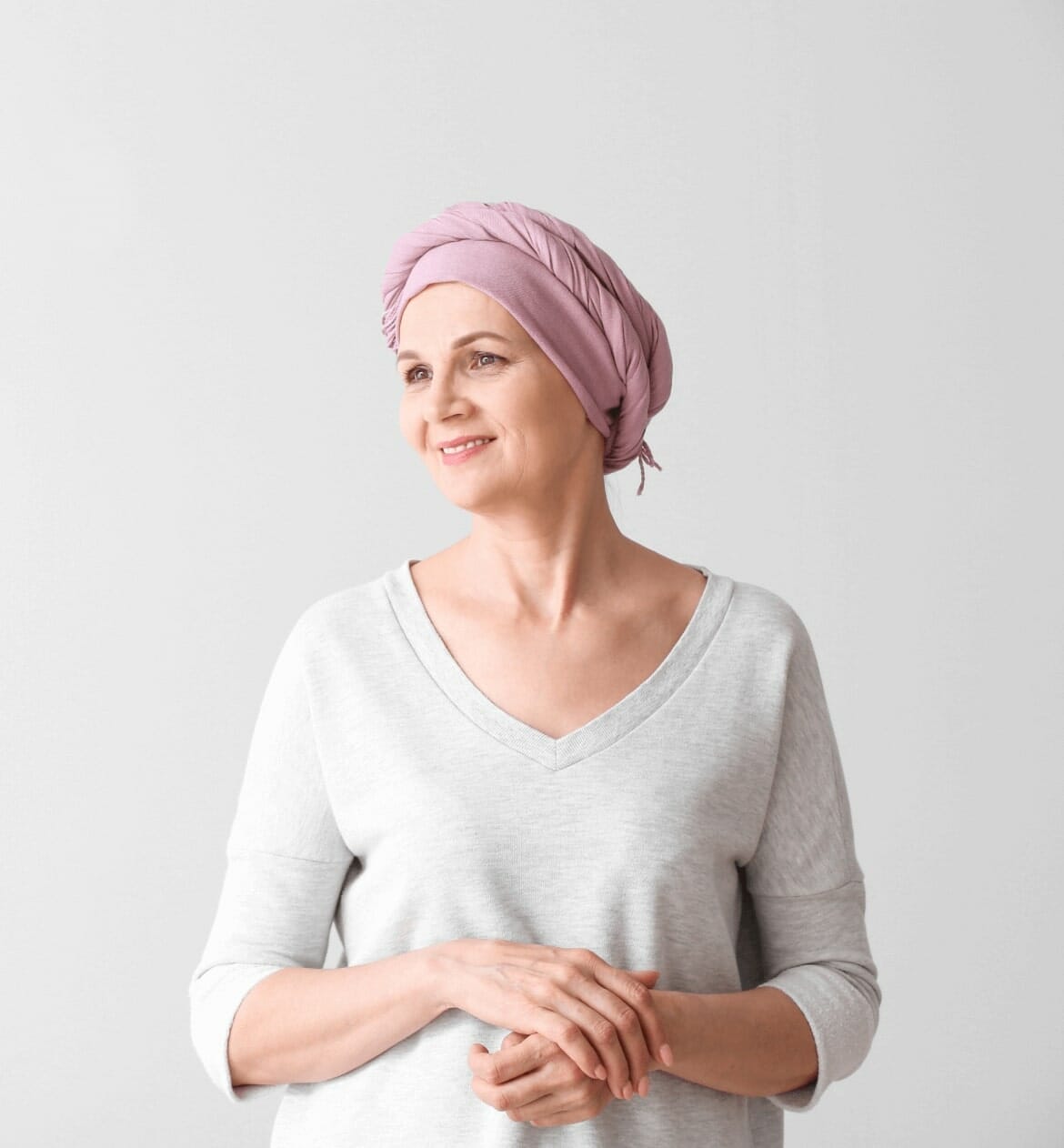

Prescription & Treatment Assistance
With the cost of cancer medications rising, many patients feel concerned about how to afford treatment.
Programs like PPA (Partnerships for Prescription Assistance) and Rx Outreach can help by providing free money to breast cancer patients through free or reduced-cost prescriptions.
Their easy-to-use online websites list multiple prescription assistance programs you may qualify for as a breast cancer patient.
Another resource offering financial assistance for breast cancer patients is Needy Meds. Needy Meds offers a free Drug Discount Card, which provides up to 80% savings on prescription medications.
If your insurance does not cover a medication or has a high deductible, fear not–you can use your Drug Discount Card to help pay for prescriptions. The Medicine Assistance Tool can also help breast cancer patients locate additional resources for prescription assistance.
Low-Cost And Free Mammograms
Regular mammograms are essential for early breast cancer detection, but the cost can be a barrier for many individuals. Fortunately, several programs and organizations offer access to low-cost and free mammograms so that everyone can prioritize their breast health.
The NBCCEDP, funded by the Centers for Disease Control and Prevention (CDC), provides free or low-cost mammograms and cervical cancer screenings to eligible women who meet specific income and age criteria. This program aims to reach underserved populations and make sure breast cancer screenings are accessible to all.
Susan G. Komen offers a Breast Care Helpline to help individuals find local resources for low-cost or free mammograms. Their dedicated team can provide information and guidance on accessing screening services in your area.
Clinical Trials
Clinical trials play a crucial role in advancing breast cancer research and treatment. By participating in breast cancer clinical trials, patients contribute to the broader understanding and improved treatment of the disease and have the opportunity to access cutting-edge therapies before they become widely available.
Funding for breast cancer clinical trials primarily comes from governmental bodies, pharmaceutical companies, academic institutions, or nonprofit organizations dedicated to breast cancer research.
For a deeper understanding of clinical trials, particularly those focused on breast cancer treatment, you can visit the National Cancer Institute’s page on breast cancer clinical trials. This resource provides comprehensive information on ongoing clinical trials, their goals, and how you can participate. It also offers insights into the structure and funding of these trials and the potential benefits they can bring to the breast cancer community. Exploring this page will connect you with contacts and additional resources, empowering you to make informed decisions about your involvement in a clinical trial for breast cancer treatment.
Health Insurance
Health insurance is a crucial tool for managing the financial challenges of breast cancer treatment. It’s essential to clearly understand your insurance plan’s coverage, including how it encompasses treatments, medications, and related healthcare services. Here are important considerations regarding health insurance for breast cancer patients:
- Coverage Clarity: Take the time to familiarize yourself with the specifics of your insurance plan’s coverage. This includes understanding your deductible, copayments, and out-of-pocket maximums. Knowing which healthcare providers and hospitals are within your plan’s network is vital to maximizing your coverage.
- Specialty Medications: Breast cancer treatment may involve specialty medications with unique coverage rules. Consult with your insurance provider to understand how these medications are covered under your plan.
- Pre-Authorization: Some treatments and procedures may necessitate pre-authorization from your insurance provider. Make sure you understand and complete all necessary authorizations to avoid unexpected expenses.
- Appealing Denials: If your insurance provider denies coverage for a specific treatment or medication, be aware of the process for appealing such decisions. Your healthcare provider can often assist by providing the required medical documentation.
- Insurance Case Managers: Some insurance companies support case managers who specialize in navigating coverage and claims. They can make the process less overwhelming by providing guidance and assistance.
By addressing these considerations, you can better manage your health insurance coverage and guarantee you receive the support you need during your breast cancer journey.
Life Insurance
While life insurance policies are typically associated with providing financial security to families after the policyholder’s passing, it’s worth noting that specific aspects of these policies can offer crucial financial assistance during challenging periods, such as when confronting a breast cancer diagnosis.
Some life insurance policies include an accelerated death benefits provision, enabling policyholders to access a portion of the death benefit. At the same time, they are alive, particularly when diagnosed with a critical illness like breast cancer.
Life Settlements
A life settlement is a financial arrangement in which a policyholder sells their life insurance policy to a third party for a lump sum. This lump sum typically exceeds the policy’s cash surrender value but falls short of the full death benefit. These funds can then cover various expenses incurred during breast cancer treatment.
Viatical Settlements
A viatical settlement is a financial arrangement that can significantly help breast cancer patients facing financial difficulties during their treatment journey. This option allows individuals with life insurance policies to sell their policies to a third party in exchange for a lump sum payment. This lump sum payment is typically greater than the policy’s cash surrender value but less than the full death benefit.
If viatical settlement is an option you would like to explore, click the link below.
Fundraising And Crowdsourcing
Fundraising and crowdsourcing have emerged as powerful tools for securing financial support to manage the expenses associated with breast cancer treatment. These platforms allow individuals to share their breast cancer journey, connect with a global community, and raise funds to alleviate medical costs. Here are steps and examples of platforms where you can initiate fundraising campaigns tailored to breast cancer:
Creating a Fundraising Campaign:
- Start by creating a campaign on a reputable fundraising platform.
- Convey your breast cancer story, diagnosis, and how the funds will be used.
- Utilize photographs or videos to establish a personal connection with potential donors.
Promoting Your Campaign:
- Share your campaign on social media, email, and other platforms to reach a wider audience.
- Engage with local communities, friends, and family to garner support and build momentum for your campaign.
Providing Updates:
- Keep your donors informed about your campaign’s progress and breast cancer treatment journey.
- Express gratitude and maintain transparency regarding fund utilization to establish trust and encourage continued donations.
Popular Fundraising and Crowdsourcing Platforms:
- GoFundMe: A well-recognized platform for personal fundraising, GoFundMe enables individuals to create campaigns for medical expenses, including breast cancer treatment costs.
- Kickstarter: While traditionally used for creative projects, Kickstarter can also be utilized for personal or community causes, including breast cancer-related campaigns.
- Fundly: Fundly is a user-friendly platform that allows individuals to raise funds for medical expenses and various causes.
- JustGiving: A global online fundraising platform that facilitates individuals in raising money for personal causes and charitable organizations.
- Charity Navigator: Although not a crowdsourcing platform, Charity Navigator can assist individuals in locating reputable organizations to which they can apply for financial assistance or direct potential donors to contribute on their behalf.

Financial Expectations For Breast Cancer Patients
A breast cancer diagnosis brings physical and emotional challenges and significant financial considerations. Understanding and preparing for the potential financial impact can help breast cancer patients and their families navigate this aspect of the journey more effectively. In this section, we’ll explore the financial expectations that breast cancer patients may face and offer insights into how to prepare for and manage these challenges.
Medical Expenses:
- Breast cancer treatment can involve various medical procedures, surgeries, chemotherapy, radiation therapy, and medications. While health insurance may cover a portion of these costs, patients often face out-of-pocket expenses, including deductibles, copayments, and uncovered treatments.
Loss of Income:
- Treatment may require time off work for medical appointments, surgeries, and recovery. For some patients, this can result in a temporary or even long-term loss of income. Understanding your workplace benefits, including sick leave and disability coverage, is essential.
Non-Medical Expenses:
- Beyond medical bills, patients may incur additional non-medical expenses related to transportation, childcare, home modifications, and personal care products. These costs can add up and impact the overall financial picture.
Insurance and Coverage:
- Review your health insurance policy carefully to understand what is covered and what isn’t. Familiarize yourself with terms like deductible, copayment, and out-of-pocket maximums. Additionally, consider seeking assistance from patient advocacy organizations to navigate insurance-related challenges.
Financial Assistance Programs:
- Explore available financial assistance programs, grants, and support organizations dedicated to breast cancer patients. These resources can provide much-needed relief for various expenses.
Budgeting and Financial Planning:
- Create a comprehensive budget that accounts for medical and non-medical expenses. Seek guidance from financial advisors or counselors to develop a plan that helps you manage costs effectively.
Support Systems:
- Lean on friends, family, and support groups for emotional and financial support. They can assist with fundraising, transportation, and childcare, among other things.
Legal and Financial Documents:
- Ensure that important legal documents, such as wills and powers of attorney, are in place. These documents can help you and your family make informed financial decisions during your breast cancer journey.
Breast cancer patients should approach their diagnosis with a clear understanding of the potential financial challenges they may encounter. Being proactive, seeking support, and planning for financial contingencies can minimize stress and enable patients to focus on their health and well-being.
Who To Contact For Breast Cancer Financial Assistance
When seeking financial assistance for breast cancer, knowing where to turn for help is essential. Contact your healthcare provider or social worker, who can guide you through available resources and programs. Nonprofit organizations specializing in breast cancer support and patient advocacy often offer valuable assistance. They can point you in the right direction.
Explore government programs, charitable foundations, and online resources dedicated to financial aid for breast cancer patients. These sources can help you navigate the various options available to alleviate the financial burdens of breast cancer treatment.
Frequently Asked Questions About Breast Cancer Financial Assistance
What Benefits Are Breast Cancer Patients Entitled To?
Breast cancer patients may be entitled to various benefits and support services. These can include health insurance coverage for treatments, disability benefits if unable to work, and access to financial assistance programs specifically designed for cancer patients.
Some patients may qualify for Social Security Disability Insurance (SSDI) or Supplemental Security Income (SSI) based on their medical condition and financial circumstances. Understanding and accessing these benefits can significantly ease the financial burden of breast cancer treatment and provide valuable support during this challenging journey.
Are There Any Free Items Or Gift Boxes For Breast Cancer Patients?
Breast cancer patients often find solace and support through free items and gift boxes tailored to their unique needs. These packages, thoughtfully curated by various organizations, offer a range of items to provide comfort, inspiration, and practical assistance during treatment. Contents may include cozy blankets, books, skincare products, and even wigs for those experiencing hair loss due to treatment.
Breast cancer survivors, advocacy groups, and hospitals and treatment centers may offer these gifts. They serve as a meaningful reminder that patients are not alone on their journey, and help provide some relief during a challenging time. Exploring these offerings can provide comfort and support for breast cancer patients.
Does Stage 4 Breast Cancer Qualify For Disability?
Stage 4 breast cancer, or metastatic breast cancer, can significantly impact an individual’s ability to work and carry out daily activities. It often qualifies as a disabling condition under Social Security rules. The Social Security Administration (SSA) recognizes that advanced-stage cancer can limit a person’s capacity to engage in substantial gainful activity.
As a result, individuals diagnosed with stage 4 breast cancer may be eligible for disability benefits, such as Social Security Disability Insurance (SSDI) or Supplemental Security Income (SSI). Eligibility criteria and the application process can vary, so it’s essential to consult with the SSA or a legal expert familiar with disability claims to determine eligibility and navigate the application process effectively.
Further Reading
>> What Is A Viatical Settlement
>> Diagnosed With Cancer: What To Do Next
>> Vatical Settlement Calculator
> >The 15 Best Cancer Centers in The USA
> > Pancreatic Cancer Treatment Costs: What to Expect
>> 30+ Organizations That Help Cancer Patients Financially
>> Financial Help & Free Money For Cancer Patients
>> Paying For Cancer Treatment: Resources, Budgeting & Costs
>> End Of Life Planning: Everything You Should Do (with checklists)
>> Is Stage 4 Cancer Terminal?
>> Alternative Cancer Treatments: What The Research Says
>> Can You Sell Your Life Insurance Policy?
Financial Assistance Other Cancer Types:
>> Financial Assistance For Bile Duct Cancer Patients
>> Financial Assistance For Multiple Myeloma Patients
>> Financial Assistance For Pancreatic Cancer Patients
>> Financial Assistance For Prostate Cancer Patients
>> Financial Assistance For Colon Cancer Patients
>> Financial Assistance For Esophageal Cancer Patients
